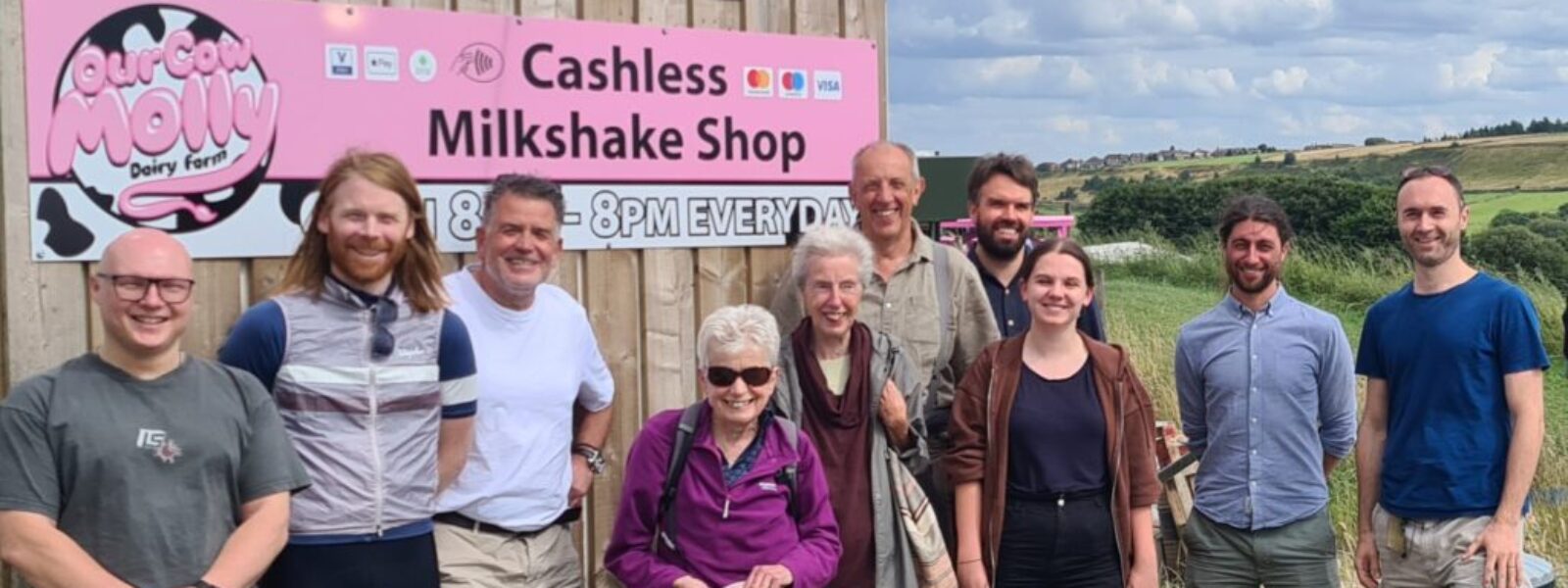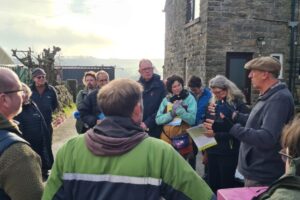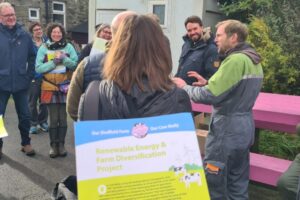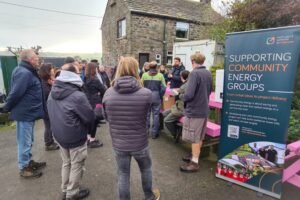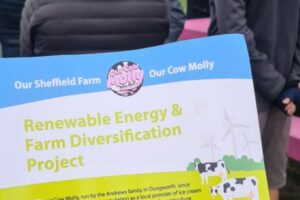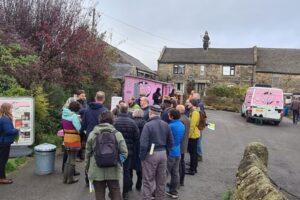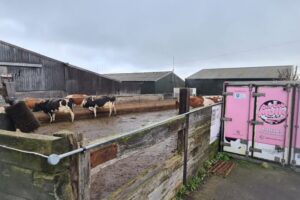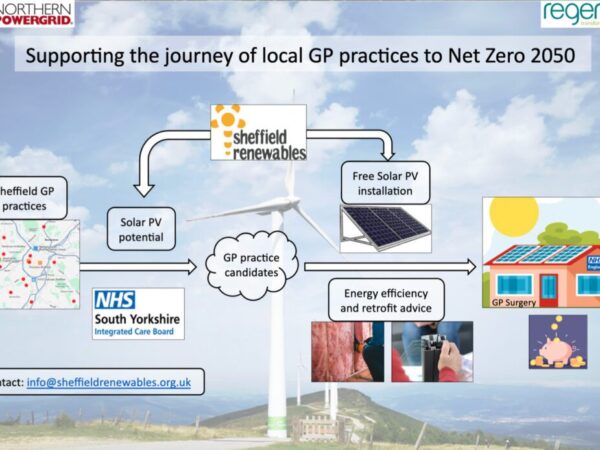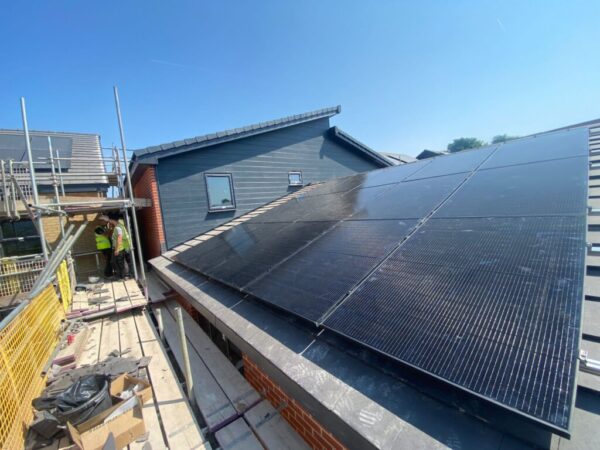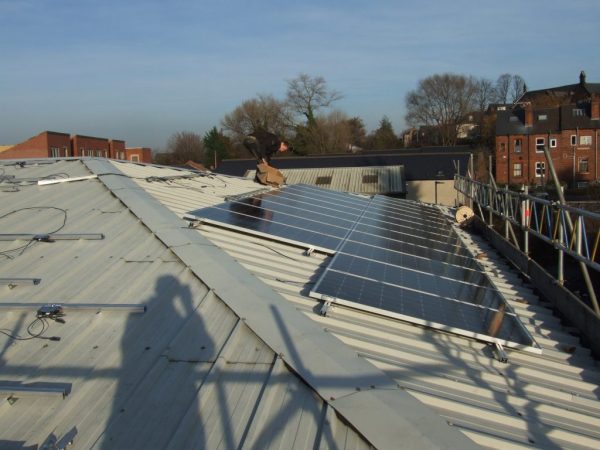CLICK HERE to read our completed Feasibility Study for Renewable Energy at Our Cow Molly
How do you decarbonise a farm? As well as energy for the human body (food), can it produce other forms of renewable energy? How can Community Energy projects work with farmers and their funding to produce more energy locally and benefit rural communities? These are the kind of questions Sheffield Renewables is investigating through our case study of the Sheffield dairy farm, Cliffe House farm, aka Our Cow Molly.
Through our grant from the North East & Yorkshire Net Zero Hub, Sheffield Renewables is producing a renewable energy feasibility study at Cliffe House farm. Nicolas Viphakone, technical manager of the Our Cow Molly project, said:
“This feasibility study has allowed us to examine different technologies that can help decarbonise farming and move it along the road to Net Zero. We have developed a clear investable pathway for Our Cow Molly and we will share that knowledge with other Community Energy groups so it becomes a model for other dairy farms. The insights we have gained have been valuable learning for us and the other partners involved.”
The case study is aimed at helping other community energy groups learn from our experience, to speed up other similar projects and enable them to be really effective. For example, Defra funding for farmers has recently been overhauled, so it’s important to understand the opportunities and challenges that brings. A good renewable energy project should integrate well into the farm’s practice, both current, and future (with risks of less water and more weather extremes, for example) and enable the farm to play a positive role for nature as well as society.
Diversifying the farm’s activities further into renewable energies requires integrating many forms of knowledge. Wind, solar and Anaerobic Digestion each have their own strengths and weaknesses – for example, the season when they work most effectively. The impact on wildlife, local communities and other businesses needs to be thought through and consulted on, and local knowledge needs to be tapped.
A farm is a business, but also a form of stewardship of the land, informed strongly by tradition and constrained by climate challenges and policies. Sheffield Renewables is helping one particular farm to find its way through this maze, and we want the learnings from this feasibility study to be really useful to other farmers and community energy projects. Our findings will be published here at the end of June 2025.
What are the key aims of the study?
Why is the study important?
Site visit and tour to mark the official launch of the study

